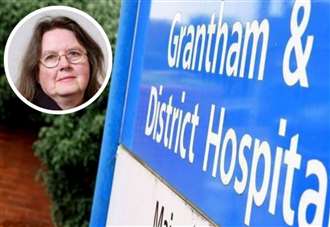Health
Urgent Warning Issued After Cancer Patients Die from Drug Delays

At least five cancer patients have died due to delays in receiving life-saving emergency medication from NHS doctors. These patients were unable to obtain rasburicase, a critical drug used to treat tumour lysis syndrome (TLS), a severe complication that can arise from cancer therapies such as chemotherapy and immunotherapy. Additionally, three patients were admitted to intensive care after missing this crucial treatment.
TLS occurs when cancer cells break down rapidly, releasing their contents into the bloodstream, which can cause dangerous electrolyte imbalances and potentially harm vital organs, including the kidneys and heart. High-risk individuals, particularly those with blood cancers, are often administered rasburicase before or during treatment to facilitate the kidneys’ ability to eliminate these toxic substances.
A recent review by NHS officials revealed that shortages of the medication and a lack of awareness among healthcare providers about the urgency of administering it have contributed to alarming delays, placing patients at significant risk.
Safety Incidents Highlight Urgency for Action
According to a national patient safety alert published on March 7, 2024, there were 82 safety incidents reported in 2021 related to delays or omissions in administering rasburicase, with an additional 41 incidents documented in 2024. Among the troubling cases was a patient with lymphoma who experienced declining kidney function. This individual was not prescribed rasburicase upon hospital admission and subsequently suffered a cardiac arrest, leading to their death the following day.
The review identified a total of 123 safety incidents linked to patients not receiving rasburicase, with 14 delays in treatment potentially contributing to patient deaths or significant health declines.
Reasons for these delays include insufficient medication stock and a lack of standardized protocols for timely administration. The alert emphasized the need for hospitals to enhance their guidance for clinicians by March 2025. Specifically, every patient with blood cancer should undergo a risk assessment for TLS and be prescribed rasburicase when indicated.
Recommendations for Improved Patient Care
The alert also recommended that the routine use of rasburicase be restricted to clinical staff with adequate training and knowledge to initiate treatment and escalate concerns regarding delays. Hospitals must ensure there is sufficient stock of rasburicase available to meet the demands of treatment courses effectively.
The NHS’s findings underscore the urgent need for systemic changes to ensure that cancer patients receive timely and effective care. As the healthcare community responds to these alarming incidents, the focus remains on safeguarding patient health and preventing future tragedies related to medication delays.
-

 Entertainment2 months ago
Entertainment2 months agoAnn Ming Reflects on ITV’s ‘I Fought the Law’ Drama
-

 Entertainment3 months ago
Entertainment3 months agoKate Garraway Sells £2 Million Home Amid Financial Struggles
-

 Health2 months ago
Health2 months agoKatie Price Faces New Health Concerns After Cancer Symptoms Resurface
-

 Entertainment2 months ago
Entertainment2 months agoCoronation Street’s Carl Webster Faces Trouble with New Affairs
-

 Entertainment2 months ago
Entertainment2 months agoWhere is Tinder Swindler Simon Leviev? Latest Updates Revealed
-

 Entertainment3 months ago
Entertainment3 months agoKim Cattrall Posts Cryptic Message After HBO’s Sequel Cancellation
-

 Entertainment2 months ago
Entertainment2 months agoOlivia Attwood Opens Up About Fallout with Former Best Friend
-

 Entertainment2 months ago
Entertainment2 months agoMasterChef Faces Turmoil as Tom Kerridge Withdraws from Hosting Role
-

 Entertainment3 months ago
Entertainment3 months agoMarkiplier Addresses AI Controversy During Livestream Response
-

 Entertainment4 months ago
Entertainment4 months agoSpeculation Surrounds Home and Away as Cast Departures Mount
-

 World2 months ago
World2 months agoCole Palmer’s Mysterious Message to Kobbie Mainoo Sparks Speculation
-

 Entertainment2 months ago
Entertainment2 months agoITV’s I Fought the Law: Unraveling the True Story Behind the Drama





















